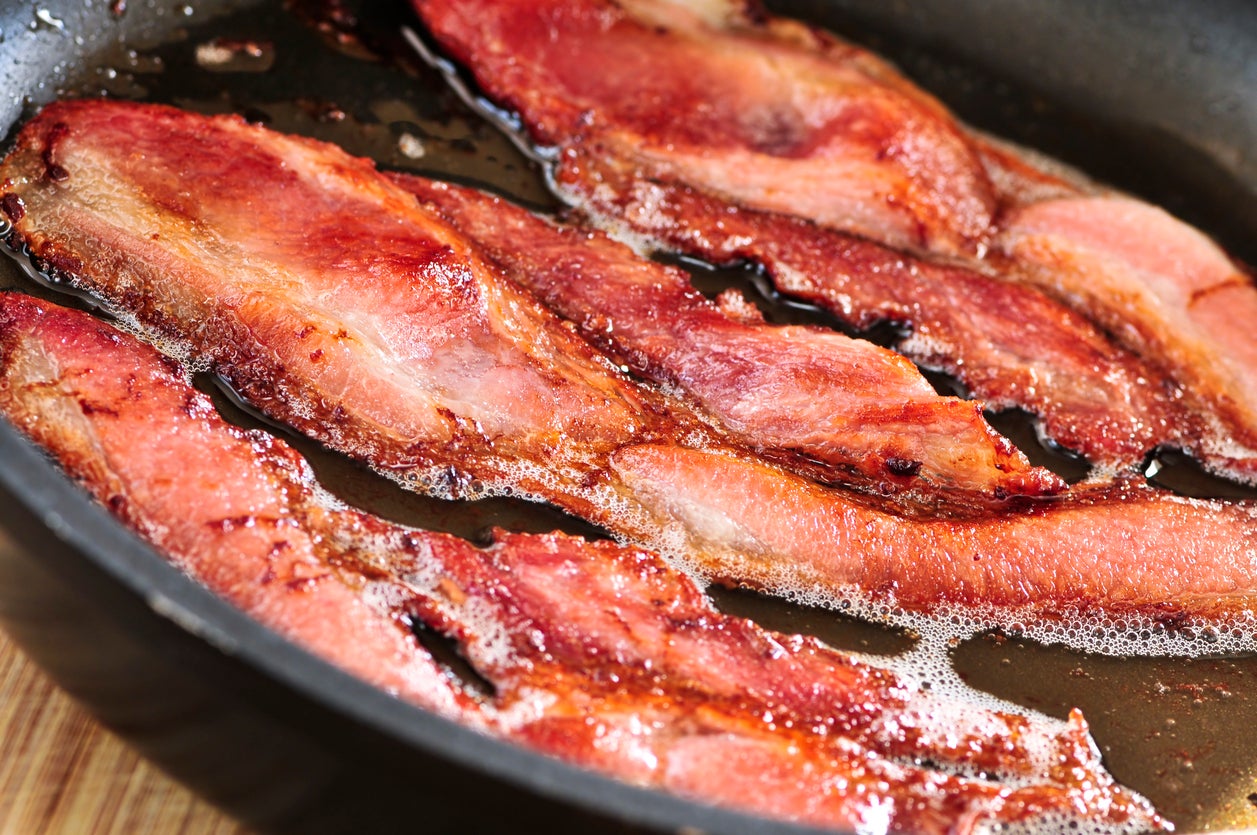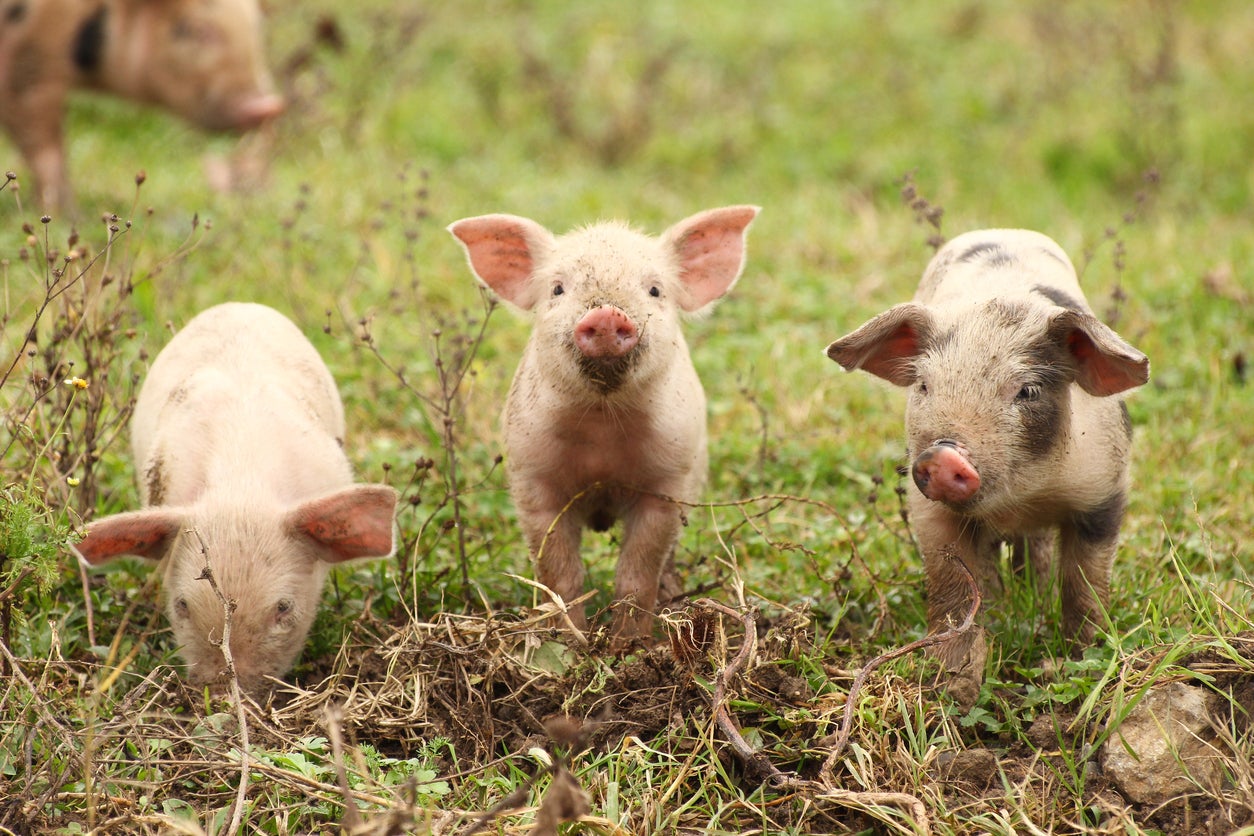Genetically modified pigs bred with 24% less fat
Bacon may have just got healthier

Scientists have created genetically modified pigs that have 24 per cent less fat than normal pigs.
Researchers from China and the UK used a genetic modification technique called CRIPSR-Cas9 that allowed them to insert a gene into the pigs which means the animals can regulate their temperature better by burning fat.
Normal pigs have a tendency toward fat accumulation, but those with the gene inserted had more lean body mass and decreased fat percentage, the study says.
They didn’t increase their activity levels or energy expenditure.
In the study, the scientists report that they’ve successfully created 12 pigs with just under a quarter less body fat than regular pigs.
The researchers inserted a mouse version of a gene called UCP1 into the pigs.
It’s a gene used to regulate body temperature that’s found in most mammals - but normal pigs don’t have it.
Keeping a stable body temperature can be a problem for pigs, particularly piglets who tend to suffer in cold, winter months when they haven’t had the chance to store body fat over time.
Inserting the UCP1 gene could counter this problem.

“They could maintain their body temperature much better, which means that they could survive better in the cold weather,” lead study author Jian-Guo Zhao told NPR.
The main aim of the modification was to try and make pig-raising less expensive to farmers, as well as making pigs suffer less in cold weather.
It’s hoped that the gene could save farmers millions in heating and feeding costs, and also reduce piglet deaths in winter.
“This is a paper that is technologically quite important,” says R. Michael Roberts, a professor in the department of animal sciences at the University of Missouri, who edited the paper for the scientific journal.
“It demonstrates a way that you can improve the welfare of animals at the same as also improving the product from those animals - the meat.”
The breakthrough is being hailed as a significant advance, but for many people, it’s the prospect of lower-fat pork products that will be most appealing.
However Roberts doubts whether the GM pigs will be approved for public consumption, or whether people would actually want to eat them.
Zhao says he doubts the pigs would taste different to regular pork products, and The Independent has contacted him for more details on how eating the modified pigs would differ from regular pork products.
Join our commenting forum
Join thought-provoking conversations, follow other Independent readers and see their replies
Comments
Bookmark popover
Removed from bookmarks